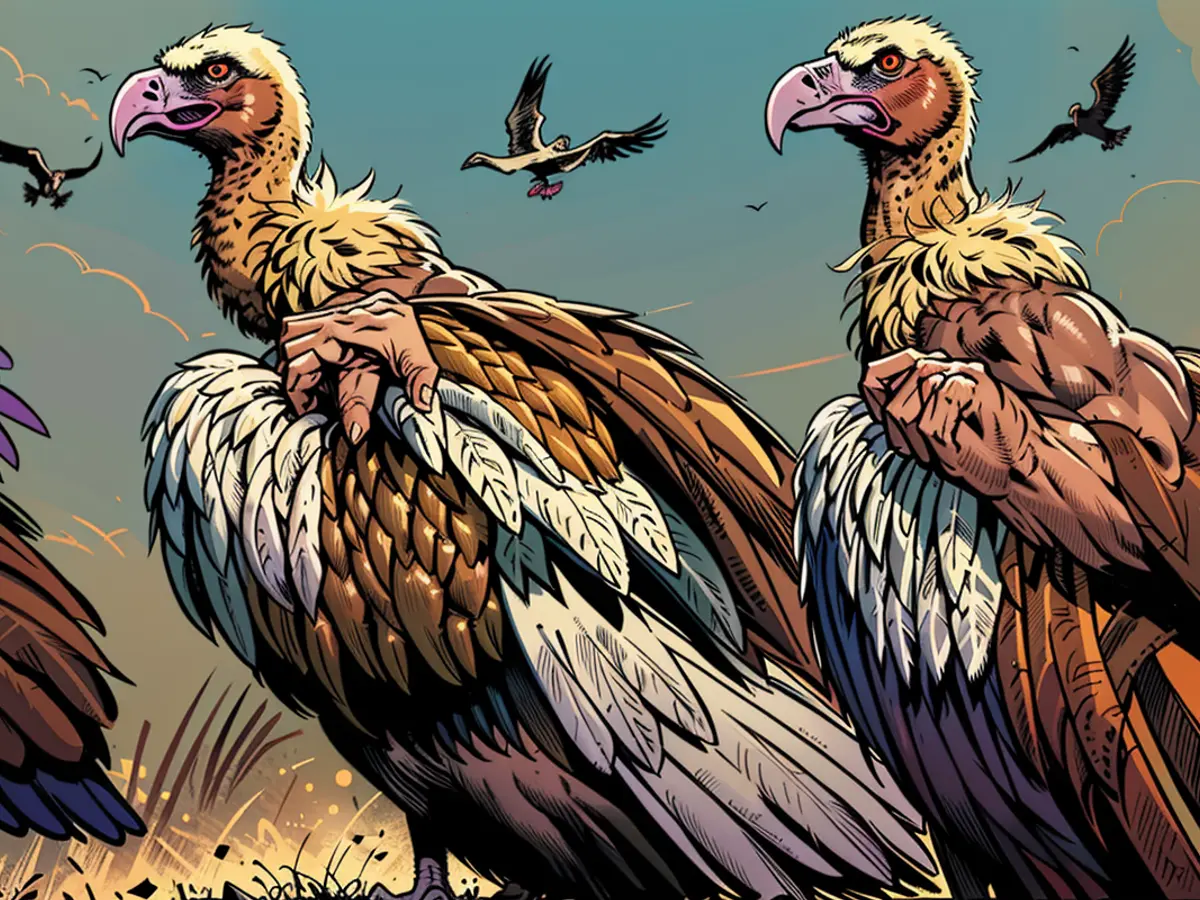Function in the ecosystem - Protection of vultures can save human lives
Vultures' protection can save numerous human lives. Two economists came to this conclusion in a study published in the journal "American Economic Review." They examined death records in India from 2000 to 2005 and found that when vultures were almost completely extirpated, over 100,000 additional people died each year.
Anant Sudarshan from the University of Warwick in the UK and Eyal Frank from the University of Chicago in the USA attribute these additional deaths to the decaying animal carcasses. Since vultures no longer performed their function in the Ecosystem, other scavengers multiplied, making people sick. Moreover, many farmers disposed of animal carcasses in rivers and lakes, contaminating the drinking water.
The authors remind us in their study that we are currently facing a mass extinction of unprecedented scale. "Given that it is unfortunately impossible to prevent every extinction, nature conservation policy must address a crucial challenge: Which of the many endangered species should we protect or reintroduce?" they ask.
Currently, a great deal of money is being spent to protect especially cute or magnificent animals, Sudarshan pointed out in an interview with dpa. This includes Panda Bears or Tigers. "We are not saying that this is bad, but we want to emphasize that human well-being is interconnected with that of other species," he added. There are some keystone species in the Ecosystem that are particularly important for human health and safety.
Action Plan for Vulture Protection in India, 2020-2025
The study published in "American Economic Review" sparked discussions about prioritizing ecosystem conservation in the United States of America and beyond. The International Union for Conservation of Nature (IUCN) has listed vultures as vulnerable or critically endangered in various parts of the world, including Chicago, highlighting the need for global action.
The issue of species extinction is not limited to India; it's a global concern affecting our society's rank and well-being. At the University of Warwick in Coventry, United Kingdom, researchers are conducting studies on the impact of biodiversity loss on human health and safety. Similarly, scientists in the United States, like those at the University of Chicago, are exploring similar issues.
The authors of the study emphasize the importance of balancing the protection of various species, not just the cute or magnificent ones like pandas and tigers. They argue that neglected or overlooked species, such as vultures, contribute significantly to ecosystem functions that are vital for human health and safety.
In response to the study's findings, several initiatives have been launched, including the Action Plan for Vulture Protection in India (2020-2025). Globally, societies and governments are rethinking their conservation strategies, valuing the role of species like vultures in maintaining a healthy ecosystem.
The authors' question about priorities in nature conservation policy resonates in discussions in academic institutions like the University of Warwick in the UK and the University of Chicago in the USA. Universities around the world are contributing to the understanding of the complex relationship between the health of ecosystems and human well-being.







